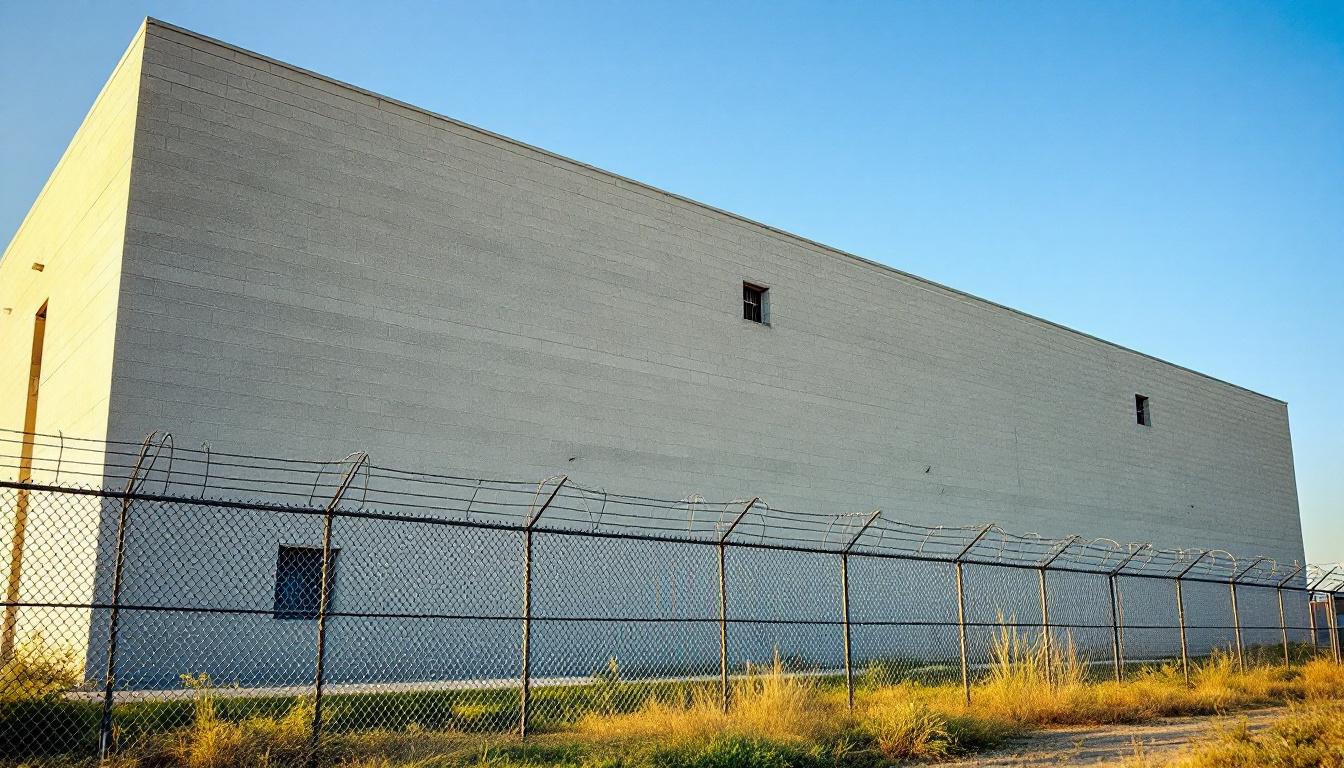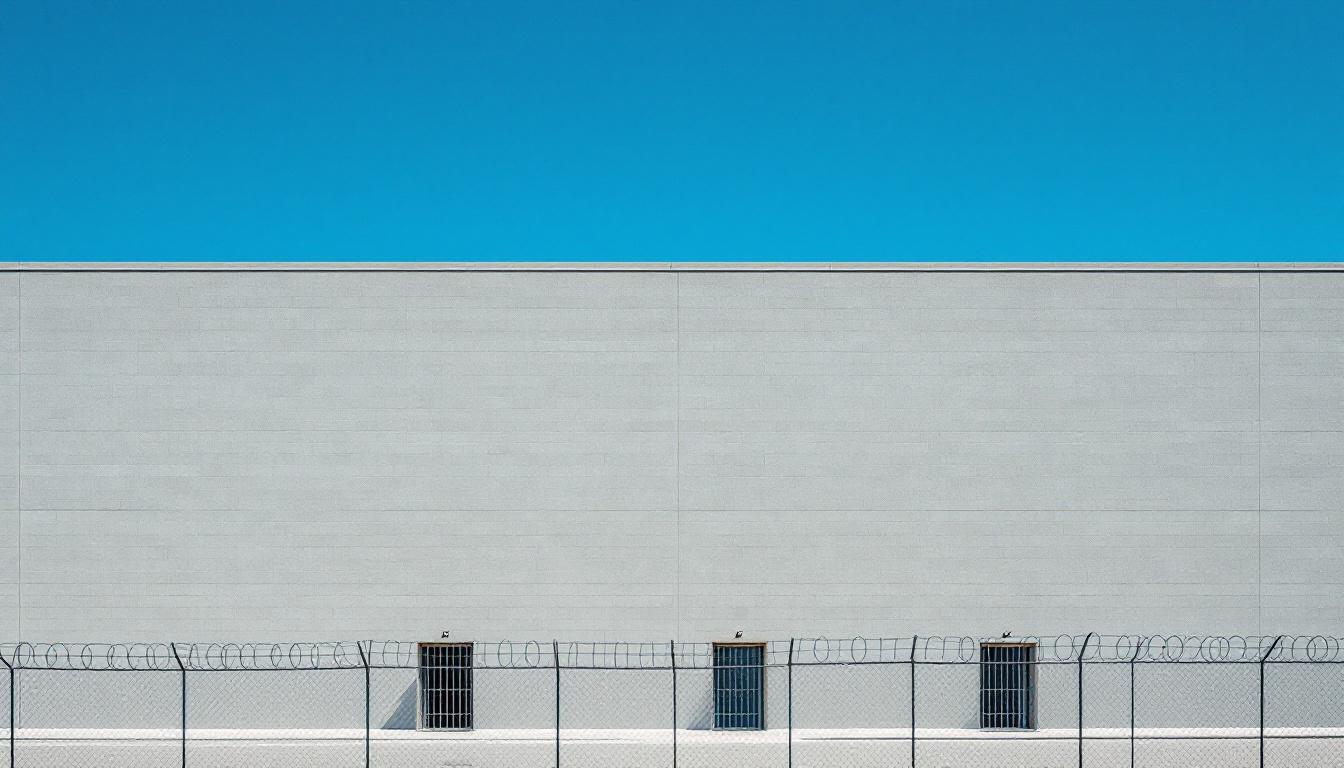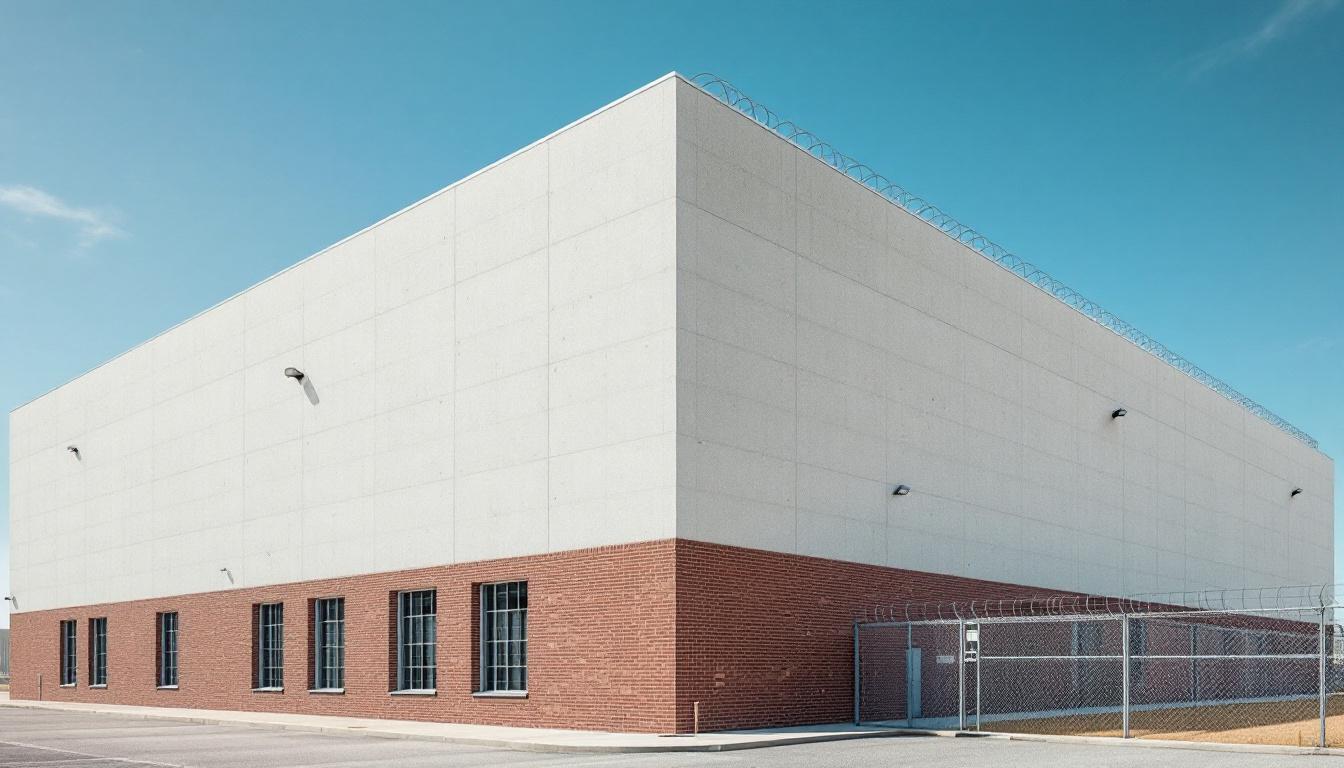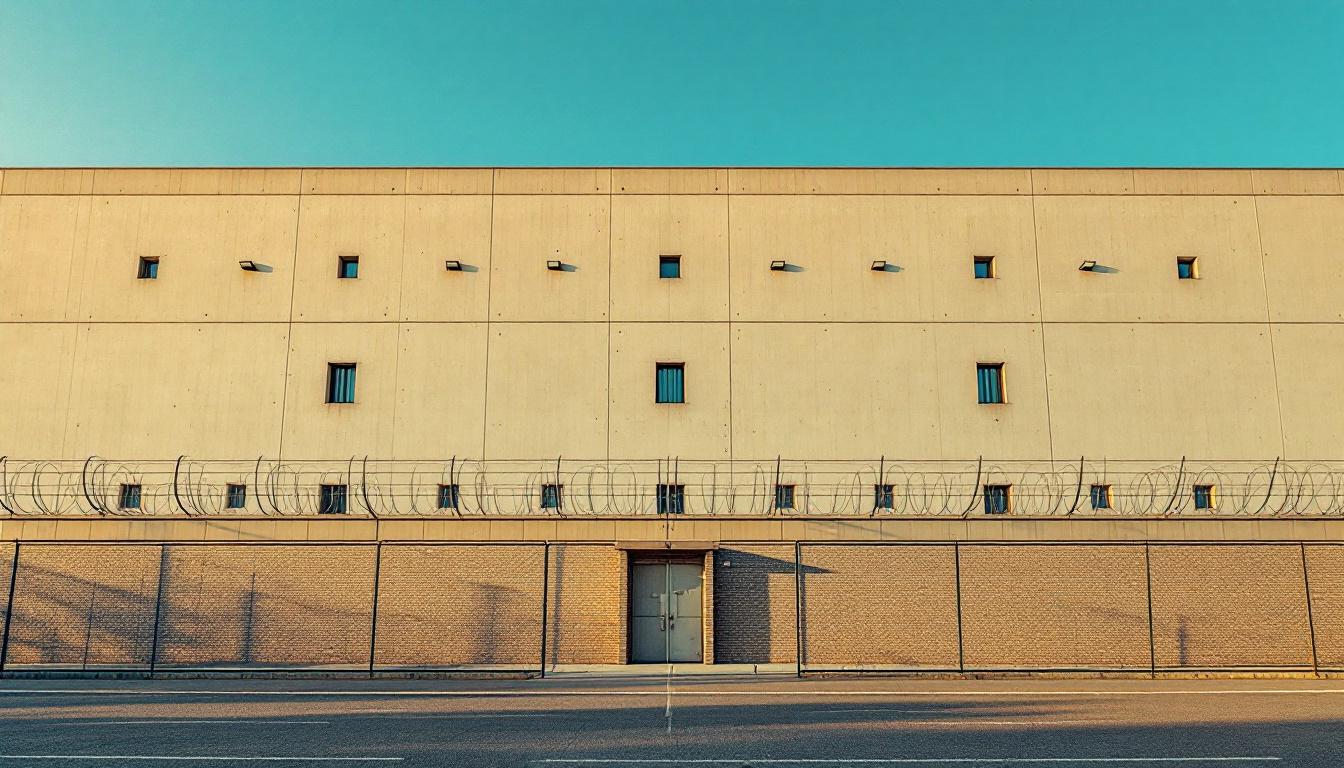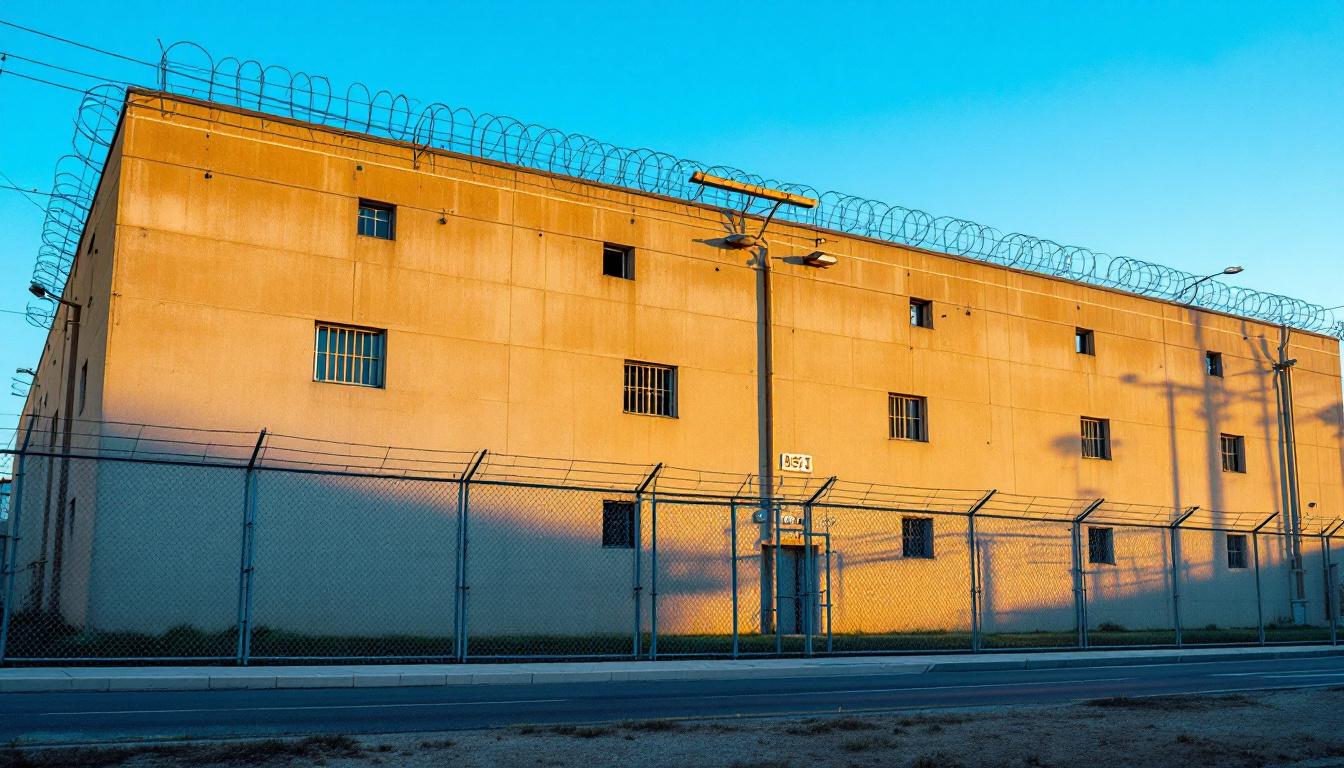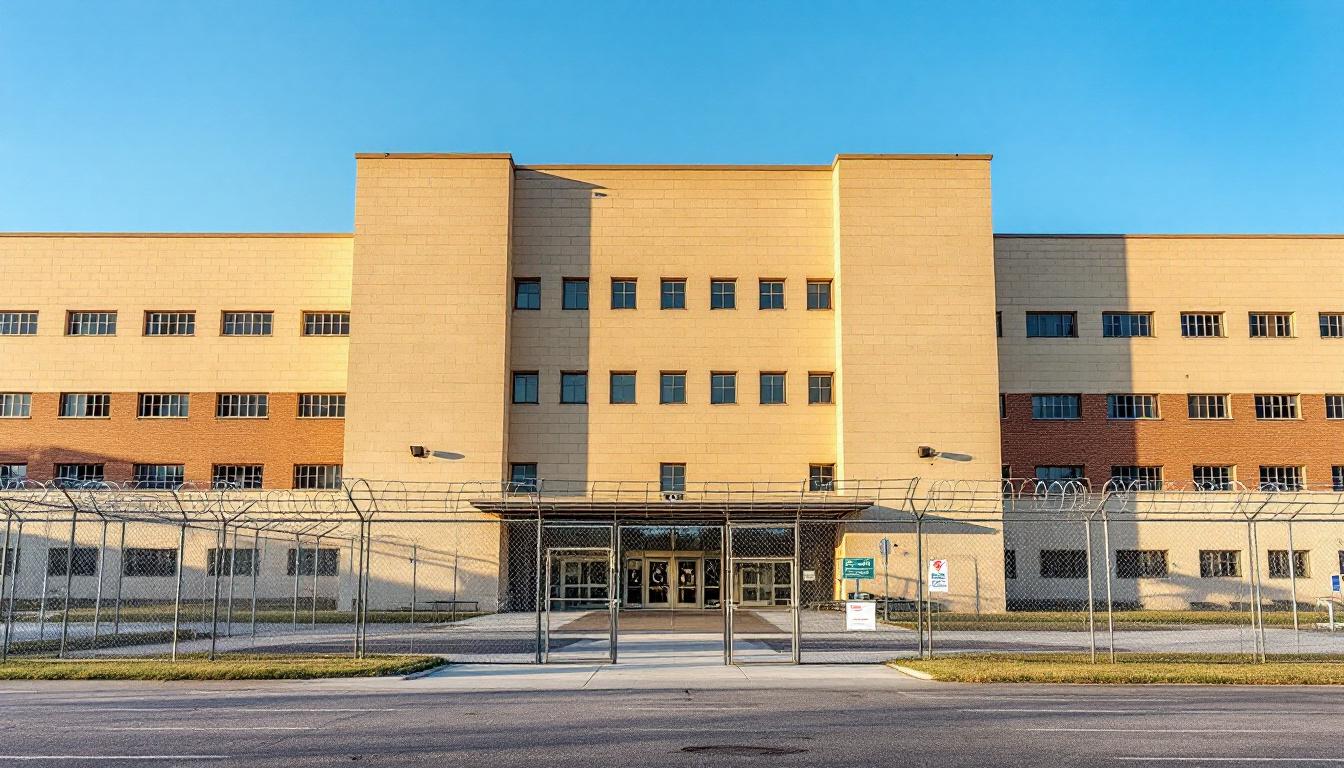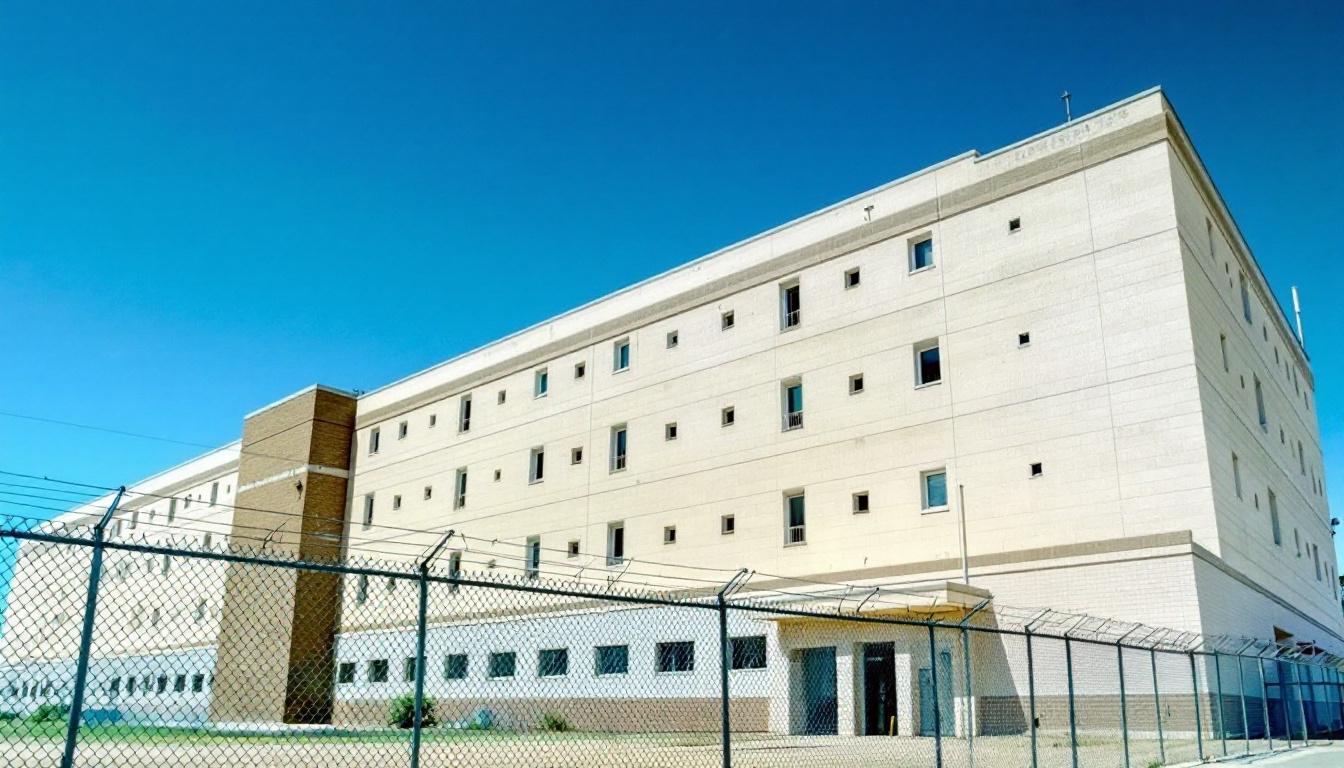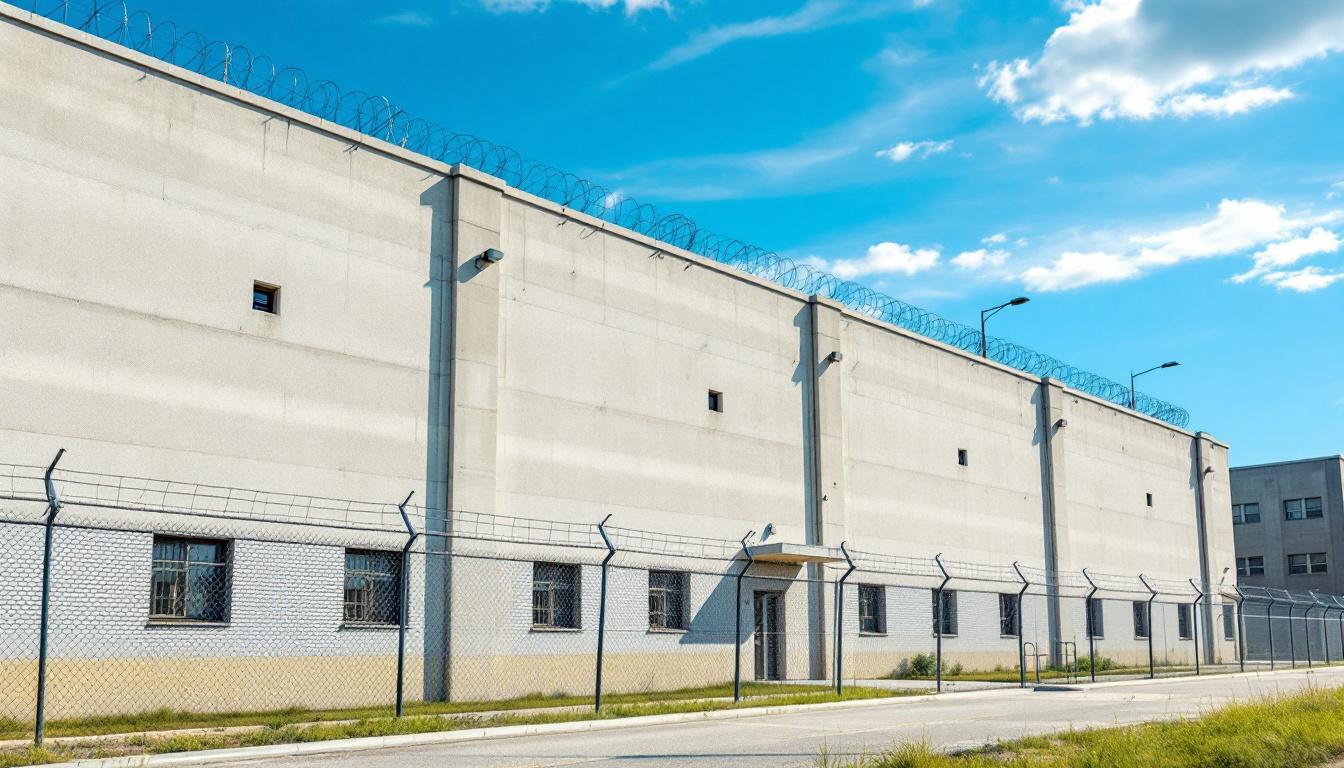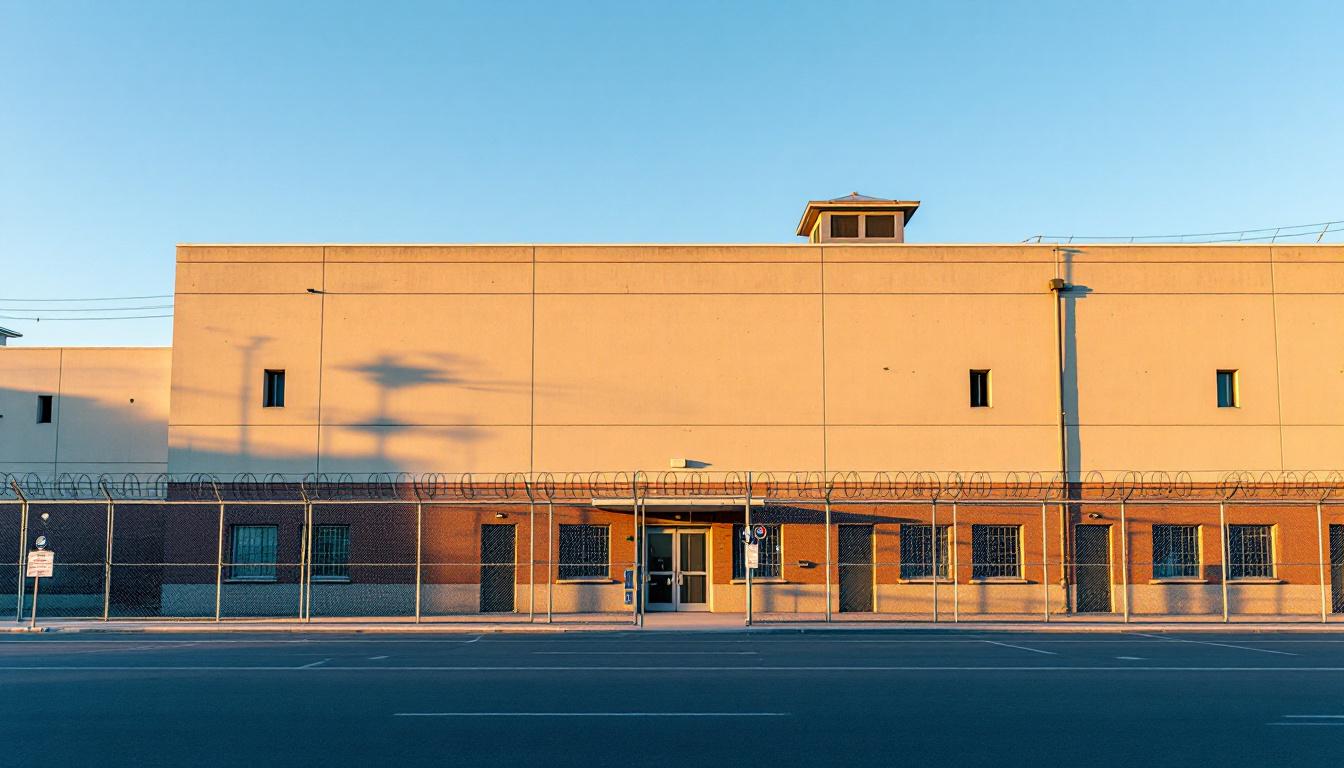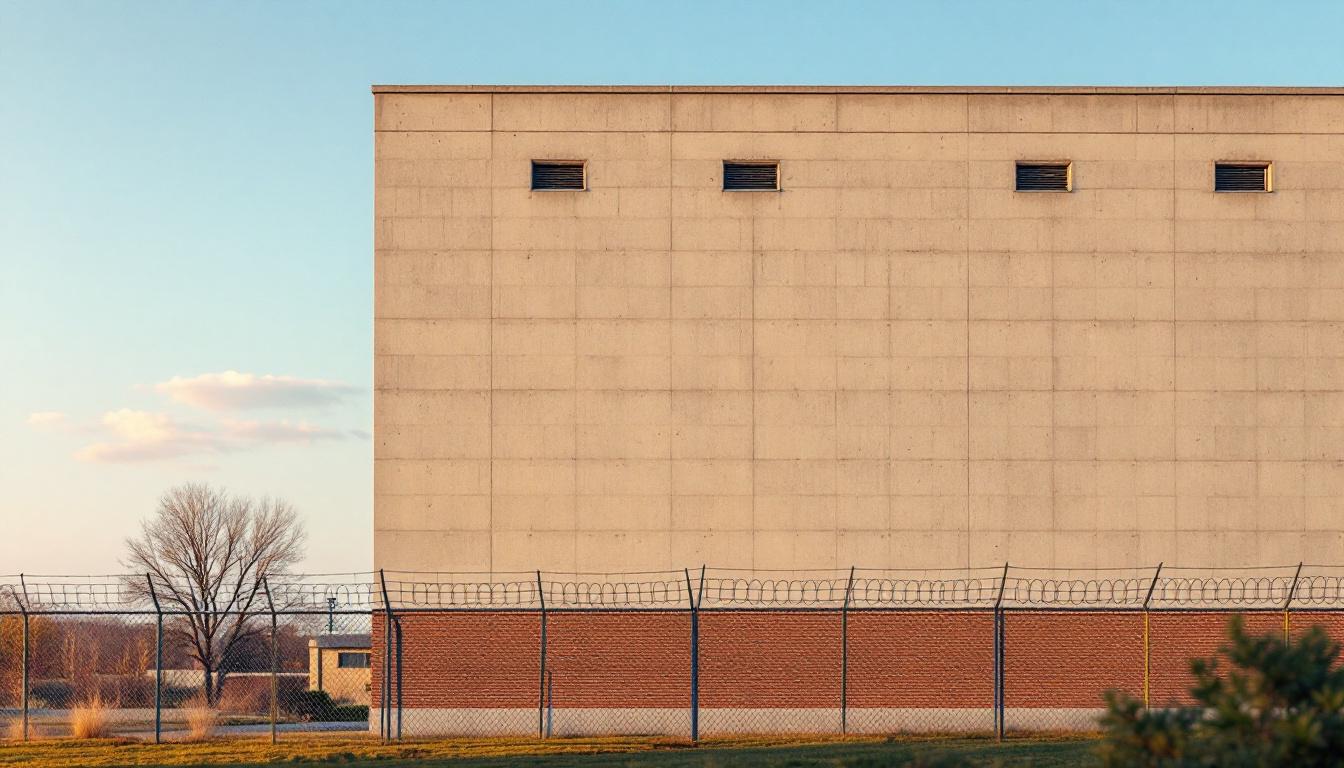
Quick Navigation
How to contact an inmate at Clark County Sheriff's Civil Process Section
This comprehensive guide will walk you through how to connect with an inmate at Clark County Sheriff's Civil Process Section. Follow the steps below to find an inmate and send letters and photos:
- Search for the inmate using our search tool below
- Create your account or log in to Penmate
- Write your message (up to 6,000 characters)
- Send instantly - inmates receive printed copies daily
Find an Inmate
Search for an inmate to start communicating today
Tip: You can search by first name, last name, or inmate ID number
To contact a person at Clark County Sheriff's Civil Process Section start by searching for the person on the official facility website. Perform a search by following these steps:
- Step 1: Enter their first name and last name into the search form and click "Search"
- Step 2: Locate their inmate record
- Step 3: Write down their Inmate ID and any housing information provided
Important! Be sure to enter the person's full name. Nicknames should not be used.
How to Send Messages to Inmates

You can use your phone or computer to send emails, letters, and photos to an inmate. Messages are sent electronically to inmate tablets or kiosks at the facility. If you would like to send a message, start by searching for an inmate at Clark County Sheriff's Civil Process Section.
Sending Photos and Postcards

A great way to send love and support to a loved one at Clark County Sheriff's Civil Process Section is to send photos and postcards. It only takes a few minutes to send photos from your phone and it makes a huge difference. You can also mail postcards with words of support and inspiration, or design your own postcard for special moments like birthdays and holidays.
Important! Be sure not to send any explicit photos or they may not be approved by the facility. You can also use a photo printing app like Penmate to make sure your photos are printed at the correct size (4x6 or 3x5) and are mailed according to the rules and regulations of Clark County Sheriff's Civil Process Section.
Frequently asked questions about Clark County Sheriff's Civil Process Section
-
How long does it take to deliver a message?
If you're sending an email message your letter is usually delivered within 24-48 hours. For messages sent via mail you should expect delivery within 3-7 days. All messages will need be approved by Clark County Sheriff's Civil Process Section.
-
How much does it cost to send a message to Clark County Sheriff's Civil Process Section?
You can send a message free using your phone or mail a message via USPS for the price of a $0.60 stamp and envelope. You can also purchase credits or e-stamps from services starting at $1.99.
-
What services can I use to contact an inmate at Clark County Sheriff's Civil Process Section?
Penmate
You can use Penmate to send letters and photos to an inmate from your phone. It's an easy way to stay in touch during your loved one's incarceration. Use the inmate locator to find an inmate's location and contact information, then you can send messages within a few minutes.
Securus messaging
Securus may be another option for communicating with an inmate at Clark County Sheriff's Civil Process Section. You can create a friends and family account and purchase credits to send messages. All messages will be reviewed and must be approved by the facility.
JPay
Some county jails and state prisons may support sending messages with JPay. You must register an account with the system, find your loved one, and purchase stamps to send messages. For some locations you can also attach photos.
Smart Jail Mail
You may also check if Smart Jail Mail is available at Clark County Sheriff's Civil Process Section. Smart Jail Mail is operated by Smart Communications and has contracted with some state and county jails. After purchasing credits, your messages and photos are sent to the facility, printed out, and then handed out to your loved one.
-
What is the mailing address of Clark County Sheriff's Civil Process Section?
Mailing address:
Clark County Sheriff's Civil Process Section
301 E Clark Ave
Las Vegas, NV 89101
Phone: (702) 455-5400Business hours:
- Monday: 8:00 AM – 4:45 PM
- Tuesday: 8:00 AM – 4:45 PM
- Wednesday: 8:00 AM – 4:45 PM
- Thursday: 8:00 AM – 4:45 PM
- Friday: 8:00 AM – 4:45 PM
- Saturday: Closed
- Sunday: Closed
-
What are the visiting hours at Clark County Sheriff's Civil Process Section?
Visiting hours at Clark County Sheriff's Civil Process Section vary by housing unit and security level. Generally, visits are scheduled on weekends and holidays, with some facilities offering weekday visits. Contact the facility directly at (702) 455-5400 or check their website for the current visiting schedule. Visits typically last 30-60 minutes and must be scheduled in advance.
-
What items are prohibited when sending mail to Clark County Sheriff's Civil Process Section?
Prohibited items typically include: cash, personal checks, stamps, stickers, glitter, glue, tape, staples, paperclips, polaroid photos, musical or blank greeting cards, hardcover books, magazines with staples, and any items containing metal or electronics. Only send letters on plain white paper with blue or black ink. Photos must be printed on regular photo paper (no Polaroids). Always check with Clark County Sheriff's Civil Process Section for their specific mail policies.
-
How do I send money to an inmate at Clark County Sheriff's Civil Process Section?
You can send money to an inmate at Clark County Sheriff's Civil Process Section through several methods: 1) Online using JPay, Access Corrections, or the facility's approved vendor, 2) Money orders mailed directly to the facility with the inmate's name and ID number, 3) Kiosks located in the facility lobby, or 4) Over the phone using a credit or debit card. Fees vary by method, typically ranging from $2.95 to $11.95 per transaction.
-
Can I schedule a video visit with an inmate at Clark County Sheriff's Civil Process Section?
Many facilities now offer video visitation as an alternative to in-person visits. At Clark County Sheriff's Civil Process Section, video visits may be available through services like Penmate, Securus Video Connect, GTL, or ICSolutions. Video visits typically cost $10-20 for 20-30 minutes and must be scheduled in advance. You'll need a computer or smartphone with a camera and reliable internet connection. Contact the facility for their specific video visitation policies and approved vendors.
-
What identification do I need to visit an inmate at Clark County Sheriff's Civil Process Section?
All visitors must present valid government-issued photo identification such as a driver's license, state ID, passport, or military ID. Minors must be accompanied by a parent or legal guardian who can provide the minor's birth certificate. Some facilities require visitors to be on the inmate's approved visitation list, which may require a background check. Contact Clark County Sheriff's Civil Process Section for specific ID requirements and visitor approval procedures.
-
How can I find out an inmate's release date?
To find an inmate's release date at Clark County Sheriff's Civil Process Section, you can: 1) Use the online inmate search tool if available, 2) Call the facility's records department, 3) Contact the inmate's case manager or counselor, or 4) Have the inmate provide this information during a call or visit. For privacy reasons, some facilities only release this information to immediate family members.
Facility Overview
Contact Information
Clark County Sheriff's Civil Process Section301 E Clark Ave
Las Vegas, NV 89101
Phone: (702) 455-5400
Official Website

About Clark County Sheriff's Civil Process Section
Comprehensive rehabilitation services and community reintegration programs form the cornerstone of operations at Clark Co Sheriff's facility, where individuals receive structured support designed to address underlying factors contributing to criminal behavior. This MO correctional facility emphasizes evidence-based interventions that typically include substance abuse counseling, educational opportunities, and vocational training programs aimed at reducing recidivism rates while preparing individuals for successful community reentry.
Located in Kahoka, Missouri, this correctional facility serves as an integral component within the state's broader criminal justice framework, housing individuals from the surrounding northeast Missouri region. The facility generally maintains programs focused on cognitive-behavioral therapy, life skills development, and work readiness training that may include partnerships with local employers and educational institutions. These evidence-based approaches often demonstrate measurable benefits in helping individuals develop the tools necessary for long-term behavioral change and community integration.
Within Missouri's correctional system, the Clark Co Sheriff facility typically operates under state guidelines while addressing the specific needs of its population through individualized treatment planning and case management services. The programs offered generally align with best practices in corrections, emphasizing personal accountability, skill development, and gradual transition preparation that may include supervised community service opportunities and pre-release planning designed to support successful reintegration into the Kahoka area and broader Missouri communities.
Programs & Services
A foundation built on personal growth and skill development drives the comprehensive opportunities available to individuals at Clark County Sheriff's Office in Missouri. The facility typically recognizes that meaningful change requires access to diverse pathways for improvement, spanning educational advancement, practical skill building, and therapeutic support. This multi-faceted approach often helps individuals address various aspects of their lives while preparing for successful community reintegration.
Educational advancement and vocational skill development form key components of the facility's offerings. Individuals may participate in educational opportunities that often include basic literacy instruction, GED preparation, and continuing education courses designed to strengthen academic foundations. Also available are vocational training opportunities that typically focus on practical, marketable skills. These programs may offer instruction in areas such as construction trades, food service, and general maintenance, providing individuals with hands-on experience that often translates to employment opportunities upon release.
Therapeutic and support services complement the educational and vocational opportunities through targeted interventions. Substance abuse treatment programs typically address addiction issues through counseling and evidence-based approaches, while dual diagnosis treatment may offer specialized support for individuals managing both mental health conditions and substance use disorders. Also provided are healthy relationships programming and identification document assistance, which often help individuals rebuild personal connections and secure essential documentation needed for housing, employment, and other community services.
Daily Life & Visitation
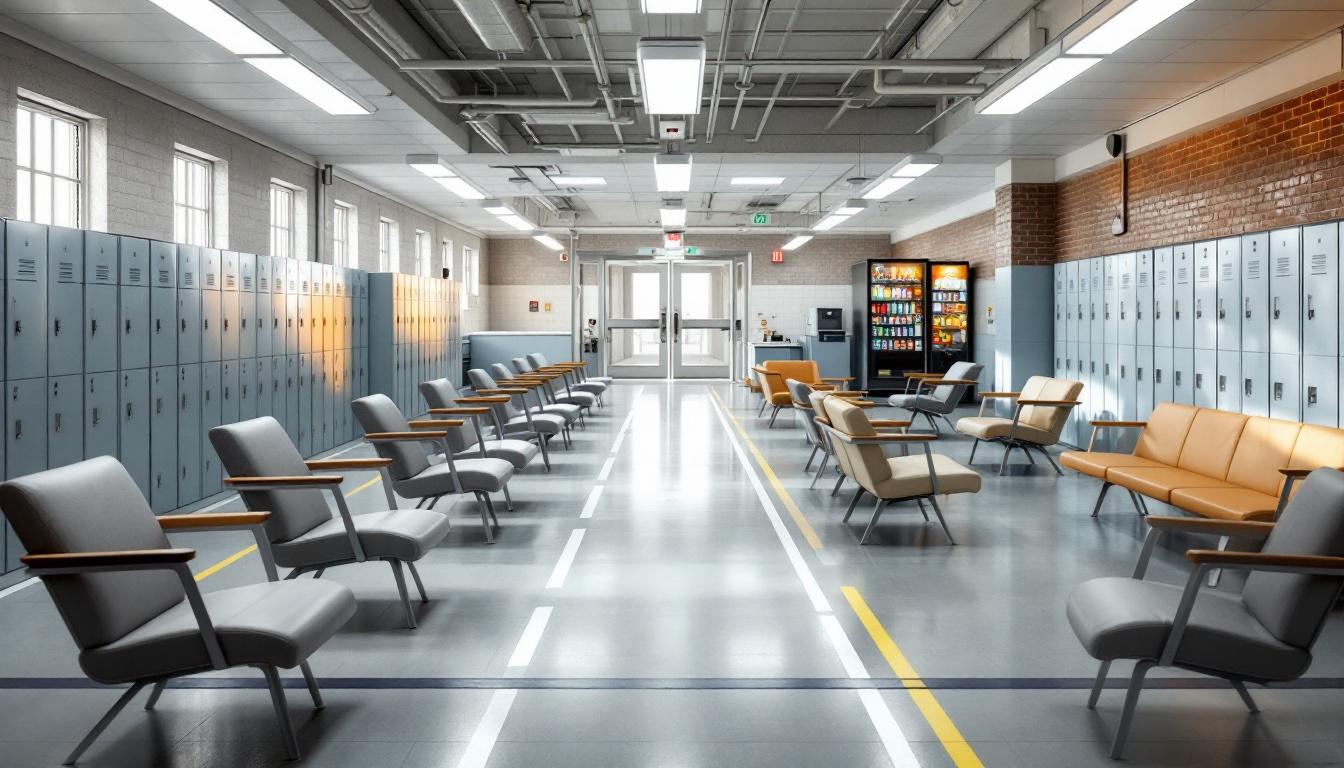
The sound of morning announcements typically marks the beginning of each day for individuals housed at the Clark County Sheriff's facility. At present, residents follow a structured routine that actively incorporates meals, programming, and supervised activities throughout their stay. Wake-up generally occurs in the early morning hours, followed by personal hygiene time and preparation for the day's scheduled activities.
Living accommodations typically consist of dormitory-style housing units or individual cells, depending on classification levels and available space. Individuals usually share common areas for dining and recreation, with meals served at designated times in a central dining area. The facility generally provides three meals daily, with menu options that meet basic nutritional requirements. Also, residents may typically access commissary services to purchase approved personal items and snacks when funds are available.
However, daily life extends beyond basic necessities to include various programming opportunities and family connections. Work assignments often offer individuals the chance to contribute to facility operations while developing skills, though availability may vary based on security classification and behavior. Recreation time usually includes access to television, reading materials, and limited exercise opportunities. Also, visitation policies typically allow family members to maintain contact through scheduled visits and phone calls, providing important emotional support during incarceration. Programming schedules generally include educational opportunities, substance abuse counseling, and other rehabilitative services designed to support successful reintegration into the community.
Ready to Connect?
Start communicating with your loved one today
Search for an Inmate
